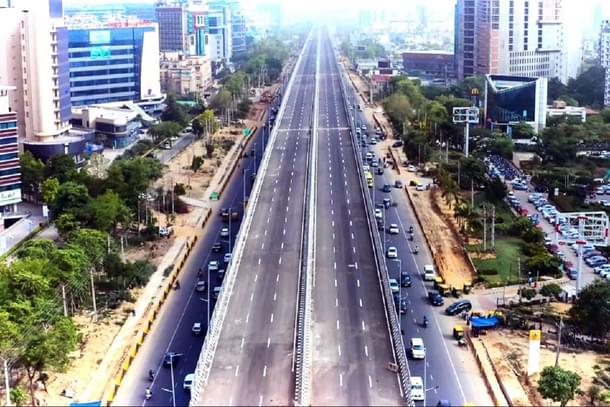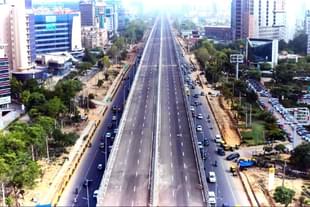Infrastructure
NHAI Pre-Pays Rs 15,700 Crore Debt Saving Rs 1,000 Crore In Interest, Eyes Further Cuts Via InvITs
V Bhagya Subhashini
Aug 08, 2024, 04:06 PM | Updated 04:05 PM IST
Save & read from anywhere!
Bookmark stories for easy access on any device or the Swarajya app.


The National Highways Authority of India (NHAI) has pre-paid a substantial debt of Rs 15,700 crore using proceeds from its 2023-24 monetisation efforts, a move that has resulted in significant savings of Rs 1,000 crore in interest costs.
With this pre-payment, NHAI’s outstanding debt has been reduced to approximately Rs 320,000 crore.
The early retirement of this debt is expected to save NHAI around Rs 1,000 crore in interest payments. Looking ahead, NHAI plans to further monetise projects worth Rs 15,000 to Rs 20,000 crore during the 2024-25 fiscal year through an infrastructure investment trust (InvIT).
NHAI's debt has ballooned over the past decade, jumping from Rs 24,188 crore in FY15 to its current level. This rapid rise is primarily due to heavy borrowing to fund ambitious highway development projects. While this strategy has undoubtedly expanded the national highway network, it comes at a cost, reports Mint.
A large portion of NHAI's budget, estimated at over Rs 30,000 crore in FY24, is currently allocated towards servicing this debt, leaving less for crucial infrastructure projects. This debt burden creates a vicious cycle, limiting NHAI's ability to generate revenue through tolls and user fees, further hindering its capacity to invest in new projects and improvements.
The government's ambitious goal is to reduce NHAI's debt by a substantial Rs 50,000 crore to Rs 75,000 crore annually over the next five years. This aggressive target, if achieved, would transform NHAI into a debt-free entity.
As per Times Of India report, In line with government directives, the proceeds from InvIT monetisation will be exclusively used to repay NHAI's debt. "With this strategy, NHAI's overall debt liability is expected to reduce further to around Rs 300,000 crore by the end of fiscal 2025," stated NHAI.
NHAI has been proactively working with lender banks to negotiate lower interest rates as part of its comprehensive debt management plan, leveraging InvIT monetisation proceeds.
As a result, banks have lowered their interest rates from the previous 8 per cent-8.1 per cent range to 7.58 per cent-7.59 per cent. Additionally, NHAI has repaid loans where interest rates could not be negotiated down.
By significantly reducing NHAI's debt burden, the government aims to unlock a new era of robust infrastructure development in India. Free from the constraints of high debt servicing costs, NHAI will have more resources to invest in building new highways, improving existing ones, and implementing advanced safety measures.
This will contribute to a more efficient and connected national highway network, facilitating the movement of goods and people across the country. A well-developed highway network is critical for fostering economic growth, creating jobs, and promoting regional development.
V Bhagya Subhashini is a staff writer at Swarajya. She tracks infrastructure developments.





